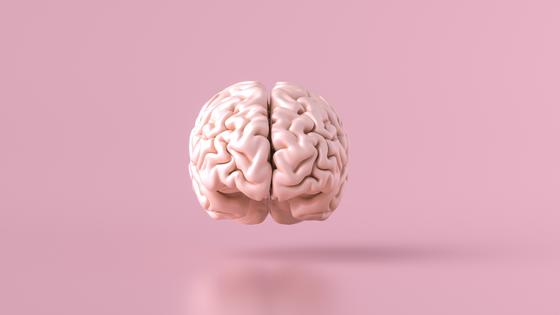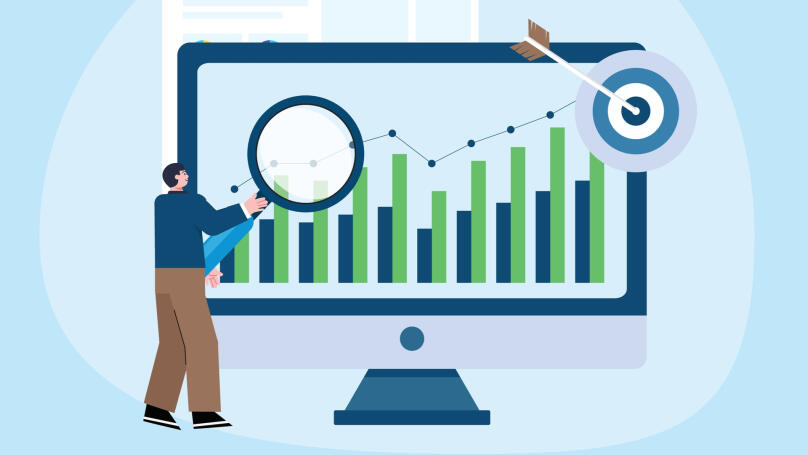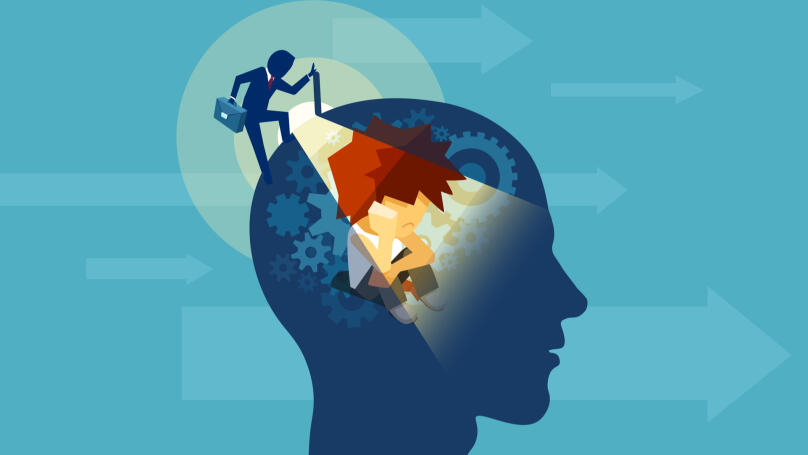How our memories deceive us: a scientific approach
Human memory is fascinating — we can remember the taste of a milkshake in New York ten years ago but cannot remember the book we read a month ago or where we put our phone.

Our memory is amazing and highly unpredictable! So many standards and filters are integrated into the human brain to select and form memories that scientists are still discovering.
How is our memory structured? What are "false memories"? Why do we forget the bad things but remember the good ones? We will reveal some of the most interesting experiments in this field and assess your memory!
How our memory works
Everyone knows about the existence of short-term and long-term memory. The first is activated when you need to quickly retain some thought or object (for example, remembering a dictated phone number to dial and call immediately.) This same memory is used during math classes when we add or subtract numbers while still keeping them in mind. Simultaneously, the maximum concentration is critical because short-term memory only works with a limited number of objects and for a short amount of time. If you get distracted, what you have remembered will instantly disappear.
Long-term memory, on the other hand, is responsible for everything we need in the long term, and the memory process continues even when we are simultaneously doing something else. Long-term memory is also far more complex in its structure than short-term memory; therefore, it also has several categories:
- Procedural memory. This memory is activated while doing something, for example, when learning to ride a bike or play the guitar. If the action is stored in procedural memory, it will never leave you entirely.
- Perspective memory. This is a memory of future events, or rather, our plans for them, for example, feeding the cat after returning from work, finishing the report at the weekend, etc.
- Declarative memory. This is a deliberate recall of information, like when we try to remember a route to a friend's house or a list of groceries to buy at the store. This type of memory can be visual (stored through images) or verbal (stored through words). Declarative memory also has three distinct subtypes, namely:
-
Semantic memory is the memory of people's names and the names and meanings of objects.
-
Episodic memory. The memory of events, like the last time we ate ice cream or swam in the sea. Part of episodic memory is also autobiographical memory of first-hand experiences and feelings.
Do you understand now how our memory is complex and multifaceted? However, why do we constantly forget something, and not only from the "short-term memory" category?
Why do we forget even essential information?

For the first time, this question was raised by the German psychologist Hermann Ebbinghaus about 140 years ago. He immediately started experimenting on himself - he began to memorize meaningless syllables consisting of three letters, and there were as many as 2300 in total. After Ebbinghaus had learned them all, he decided to check out what he remembered for 20 minutes to 30 days. The "forgetting curve" emerged, demonstrating that we can forget information consistently and in jumps. With numbers, it looks like this: after an hour of learning information, only 40% of this information stays, and after 10 hours, even less - 35%. After six days, we only remember 20%.
Ebbinghaus also discovered that committing to memory meaningful words that conjure up an associative group and have a relationship is much more effective. For example, Byron's "Don Juan" was remembered nine times faster and more efficiently than the three-letter syllables. On the other hand, the information that a person extensively uses throughout their life is also much harder to forget. Thus, pure theoretical knowledge, for example, an exam, is quickly erased from one's memory due to its impracticality. Therefore, to avoid forgetting necessary but theoretical things, Ebbinghaus suggested the systematic repetition of information since he found out empirically: that the more you repeat information, the longer your memory retains it.
Curiously, our memory is not only volatile but also easily subjected to external manipulation. For example, psychologists have discovered that our memories can be transformed by conscious or even unconscious influence.
False memories: how and why do they occur?
The "false memories" phenomenon is normal and can occur even in healthy people. The reasons for forming these memories are many, from alcohol intoxication to traumatic memories from childhood. Our brain modifies at its discretion to protect our nervous system from stress. False memories might also become ordinary fantasies, so vivid and emotional that they take hold. Suppose false memories start to dominate over the real ones. In that case, it is already paramnesia. This memory disorder manifests itself by distorting past events to eliminate the gaps due to conditions. However, it is an established medical diagnosis, and paramnesia is rare.
In any case, it happens the same way: already existing neural groups are activated in a person, which underlies certain memories, in connection with which these neural groups begin to complete their construction, "accumulating" with non-existent details, fictional events, etc. Thus, the new activity of neural groups reshapes the old one, and distorted memories appear.
The American psychologist Elizabeth Loftus has demonstrated that the human memory can be purposefully changed using certain techniques. She conducted the first-ever experiment back in 1995: the participants were told various stories that supposedly happened to them during their childhood, which their parents shared with psychologists. Then, she asked the participants to recall the details of those events. As a result, they remembered something that did not occur. Instead, they believed that the story told happened to them during childhood.
Through that experiment, 25% of the subjects were partially or completely convinced that they were lost in a supermarket at the age of five and wandered around it for a long time until an adult rescued them. At the same time, the details that each subject discussed regarding the incident varied. That is, everyone enhanced their stories in their way. As a result, Loftus found that every third person appropriates false memories and is unaware of them.
Experiments have also shown that we are more likely to appropriate false-positive memories than negative ones. For example, only 25% of the participants believed they got lost in a store when they were children. On the other hand, as many as 50% of people thought they traveled with their parents in a hot air balloon as a child.
Experiments with leading questions

In later experiments, Elizabeth Loftus found that altering human memory is even easier than she had previously thought - all she had to do was ask the right questions. For example, in her new study, forty subjects were shown a video of eight rebellious students vandalizing a professor's office at a university. The subjects were then divided into two groups of twenty. The first group was asked, "Was the leader of the four student rebels male?" and the second group was asked, "Was the leader of the twelve student rebels male?"
A week later, the subjects gathered again and asked how many students they remembered in the video that the psychologists had previously shown them. During the leading question, the group said that there were only four rebels (when there were eight) on average, remembering 6.4 students in the video. The second group, which was led to believe that there were twelve students, named an average of 8.85 rebels.
Thus, scientists have demonstrated the influence that leading questions have on our memory. The same applies to eyewitnesses: an experiment where two participants with different memories of the same event encountered each other in a conversation showed that the participants began to distort each other's memories.
Lectera’s Online Courses by topic
Why do we forget the bad but remember the good?
Have you ever noticed that when you end a relationship with someone, you only remember the good things about them after a certain amount of time? All previous unpleasant and difficult experiences seem to fade and eventually disappear. Scientists from the University of Geneva decided to explore this intriguing phenomenon that affects our memory. They chose several individuals and set them the simple task of playing two computer games before going to bed, each involving various parts of their brain. Scientists ensured that the subjects inevitably lost in one game. However, in the other one, they won.
At the end of the games, the participants slept in an MRI machine that tracked which parts of their brains were activated during the deep phase of their sleep. The scientists discovered that the hippocampus (our main memory center) interacts in sleep with those parts of the brain activated by the game when the subjects won.
In other words, our brain, during sleep, repeats the activity that is performed before going to bed. When given a choice between an activity that brings back positive memories and an activity that recalls negative memories, the brain will choose the positive. In this first option, the brain also strengthens the neural circuits so that the recollection of winning remains in the memory for a long time. The second, which is negative, breaks them to erase them. As a result, two days later, when the experiment participants once again went back to the psychologist to play the games, they all remembered the best game they had won in the previous session. This confirms that our brain retains pleasant memories and forgets the unpleasant ones.
Why does this happen? It is not just because the brain eliminates negative memories to protect our nerves. It is also because of a "self-cleaning" mechanism that makes us forget impractical or irrelevant information. Our memory is a library: where do you put new books if all the shelves are full? Therefore, the brain works through a method of elimination - it initially forgets what we do not use or what creates emotional problems.
The fact that the brain has a "self-cleaning" function was also confirmed by an experiment conducted by psychologists from Glasgow University in Scotland. Participants were asked to memorize two tasks; as a result, it turned out that if a person remembered the second task well, they could hardly remember the first, and vice versa.
Let us test your memory!
To ensure you have as few false memories as possible and the brain does not attempt to throw out unnecessary or uninteresting things rapidly, you might try to expand your "mental library." That is, simply by training your memory. Although at first, you need to evaluate it! The following tests can be done on their own, and they are like games, so the whole family can participate. Here are a couple of tests for you:
- Verbal memory test. Ask someone to read out fifteen unrelated words and then try to repeat them (ideally in the same order, but it is not necessary). Generally, people under forty-five remember only 7-9 words. Regardless of the result, listen to this list three or four more times. If you remember at least twelve words after that, your memory is fine. However, most adults cannot remember more than ten words when doing this exercise for the first time.
- Visual memory test. Draw the image below while looking at it. Then take a blank sheet of paper and try to draw this image without looking and using your memory. The more details you can reproduce, the better your visual memory.

The human memory is not yet fully understood, so it will surprise you and scientists alike. Therefore, it is worth treating it with exceptional care and attention. Always keep your brain in decent shape to be ahead of the rest! In the article "How to hack your memory and remember everything in the world," you can find many brilliant life hacks for those who want to turn their memory into a superweapon, learn even faster, and build a successful career!
Share this with your friends via:
Latest News

In the UK, £23 million has been allocated for the expansion of the EdTech Testbed program — pilots of educational technologies in schools and colleges.

In the US, Tuskegee University announced the launch of Tuskegee University Global Campus (TUGC) — a new online platform for distance learning.

A significant stage in the development of the alternative education system has begun in West Northamptonshire in the UK: the County Council is actively calling on parents, guardians, and trustees to participate in shaping the future of this key area.

Outwoods Primary School in Atherstone, Warwickshire, having experienced deep sadness after the loss of their famous cat, Silla, has found solace in a new pet – a Maine Coon named Aloysius O’Hara.

In modern universities, artificial intelligence, and in particular ChatGPT, is rapidly transforming from a controversial tool into a full-fledged student assistant.












 9 Career Mistakes Young Professionals Make
9 Career Mistakes Young Professionals Make
 £23 million allocated for the expansion of EdTech Testbed in the UK
£23 million allocated for the expansion of EdTech Testbed in the UK
 Tuskegee University launches Global Campus — a new online platform
Tuskegee University launches Global Campus — a new online platform
 Test: How Psychologically Mature Are You? Check Your Inner Foundation.
Test: How Psychologically Mature Are You? Check Your Inner Foundation.
 Test. Check Your Social Media Dependency Level!
Test. Check Your Social Media Dependency Level!
 Test: What Business is Right For You?
Test: What Business is Right For You?
